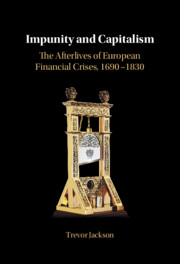Book contents
3 - Between Independence and Impunity
The Legitimacy of Central Banking after the Crisis of 1720*
from Part I - Preface
Published online by Cambridge University Press: 08 September 2022
Summary
This chapter demonstrates that, in addition to his well-known experiments with paper money, John Law’s System was a project for creating a politically independent central bank. His arguments, and those of his defender Nicolas Dutot, tried to establish a legitimate role for autonomous monetary policy, while his detractors in the 1730s and 1740s like Richard Cantillon and Joseph Pâris-Duverney argued that central banks constituted conspiracies among cosmopolitan elites, not virtuous governance. This neglected episode in the history of economic thought established the data, rhetorical practices, and concepts for later theories over whether the monetary system can or should be within the scope of human agency. Participants in the debate developed the conceptual foundations of self-ordering economic systems, pioneered the use of calculative reasoning in public debate, and tried to theorize the constitutional relationship between government, money, and commerce. These authors were trying to use an emergent episode in their understanding of economic history to uncover the principles of justice, legitimacy, and agency in the newly formed cosmopolitan dominium of commerce and finance.
- Type
- Chapter
- Information
- Impunity and CapitalismThe Afterlives of European Financial Crises, 1690–1830, pp. 104 - 132Publisher: Cambridge University PressPrint publication year: 2022

